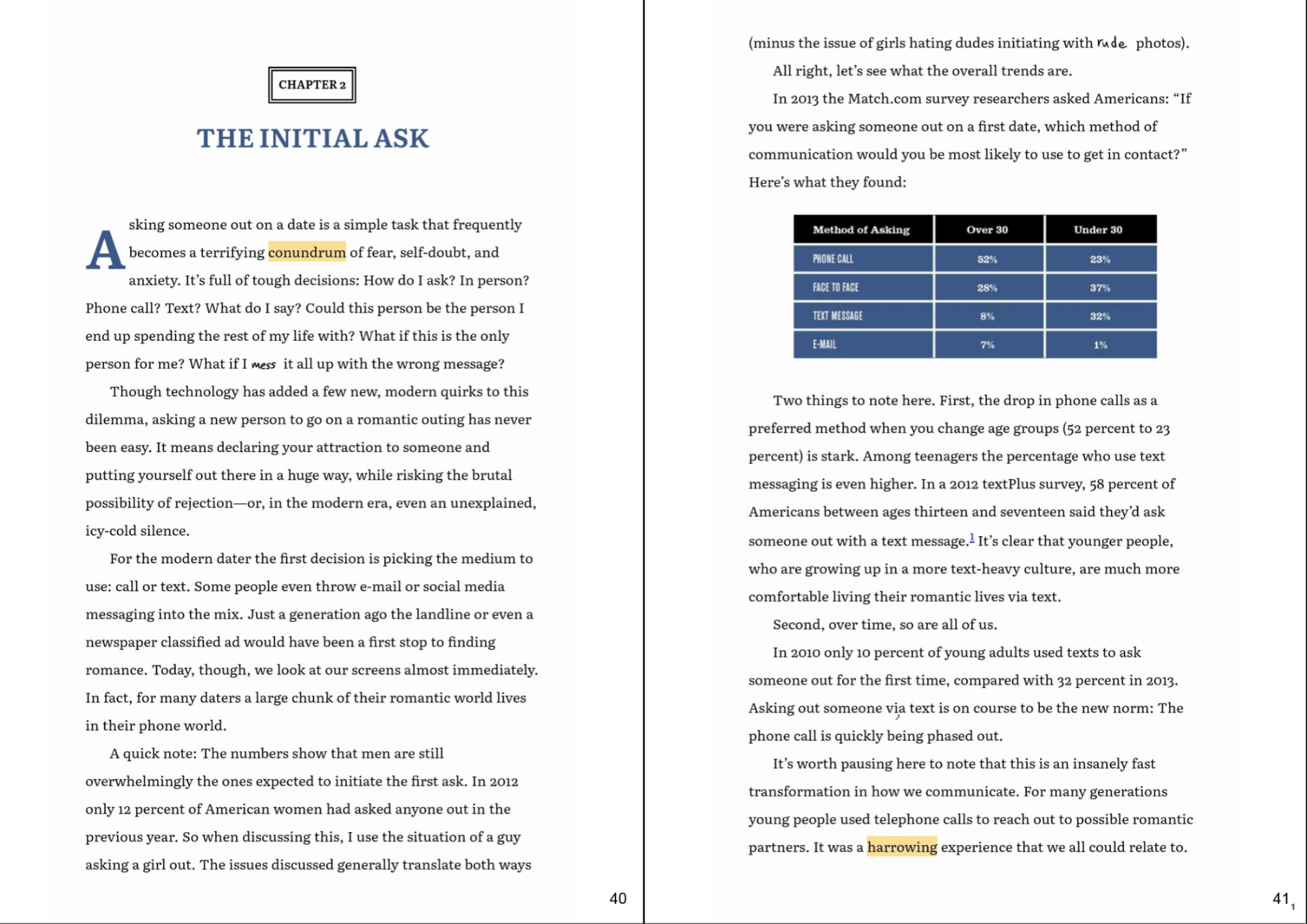December
14
B6 ELA 20 “Initial Ask” Questions
Here are some written out questions to consider when reflecting on this text.
Note: If you have a copy of the text without page numbers, the first page is pg 40.
- Pg 56-57 The Two Selves: The author mentions research giving evidence of people developing “two selves” – an online self and an in-person self. Why are there these two personas of people and what danger is there in it? Can you identify with this, having two selves yourself, or not? Explain.
- Pg 62 Spelling: The book talks about how spelling errors in early texts between potential romantic partners can be a turn off. Why do researchers think it matters so much in this digital world related to dating?
- Pg 63 Three Traits for a Successful Text: From the feedback they’ve gotten from people’s personal experiences, the author breaks down the three things required for a successful text message. What are they and why do these seem most important for giving the right impression?
- Pg 67 It’s written in the text that “the person who receives the last message in a conversation wins”. George Hormans established the classic sociological “Principle of Least Interested”, which implies that the person who is least interested in the relationship has the most power. Explain your understanding of this concept. Can you relate to this theory from your experiences? If not, explain why you think this happens.
- Pg 67 Wait Time: What observations does the author share about how people use “wait time” with potential romantic partners? What are some of the approaches/personal rules to implementing wait time? (wait two times as long or 1.25 times as long etc) Share whether you have your own type of rule or habit.
- Pg 68 Explain the advice Socrates gives to the young woman so she can better attract more of a man’s attention. From your perspective and experience, is there truth to this concept? Could it work as well if a man employed this technique as for a woman using it? Explain.
- Pg 69 “reward uncertainty”: Summarize the psychological concept explained of “reward uncertainty” and share how people can use it in their potential romantic relationships. Knowing this pattern of human behaviour, how can people use it to benefit themselves?
- Pg 76-77 When not interested – there is an ironic difference between the way people want to be treated when they are crushing on someone who isn’t interested back versus the way they typically respond to someone who is crushing on them but they don’t return the feelings.
- How do people typically say they would want a crush to let them know the crush isn’t interested?
- How do people end up typically letting others who are crushing on them know that they aren’t interested in return?
- What is ironic between these two approaches, based on the book’s explanation? Why do you think there is this difference? Have you seen this type of difference in your expectations of how you are treated versus how you treat others?
Extra Q: In general, what is your review of this book/chapter – how would you describe it to next year’s ELA 20 students and would you suggest they read it?
